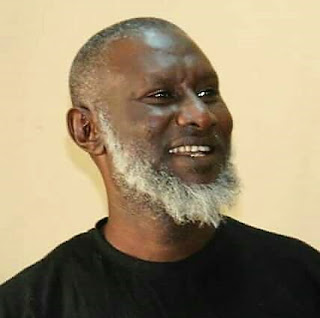We have no life if we are incapable of attaining the fullness of our Arts - BM Dzukogi
Between July 20 and 21, 2018, Northern
Nigeria writers converged on the Command Guest House, Maiduguri, the Borno
State capital, for the 2018 edition of the Northern Nigeria Writers Summit
(NNWS).
Maiduguri is one town most
affected by the dreaded Boko Haram insurgency. Several lives have been lost
and many people displaced. Yet, these dispiriting realities didn’t douse Northern Nigerian writers' desire
to choose the town as a meeting point to discuss the development of literature in
the region.
One of the motivating factors for this choice was the ardent will of the Borno State
Governor, who is also the Chairman of the Northern Nigeria Governors’ Forum,
Alhaji Kashim Shettima to support literature. According to the Chairman,
Northern Nigeria Writers’ Summit and former General Secretary of the
Association of Nigerian Authors, BM Dzukogi, the choice of Maiduguri was “part
of the rebuilding of Borno State” and to begin
“the process of literary regeneration in the region.”
 |
| BM Dzukogi welcoming Gov. Kashim Shettima to the NNWS conference |
Dzukogi noted that northern writers were
worried with the dormancy associated with people in the region due to lack of
structures, which, according to him, is a war that is more devastating than physical war.
According to him, “we have no
fear, we have no death but we have no life since we are incapable of attaining
the fullness of our arts. Today, as Northern Nigeria writers, our production is
far below our capacities. Any society that does not document herself does not
exist. This is what we want to change. And this is what you have encouraged us
to do by sponsoring this event”.
While appreciating Governor
Shettima for his of understanding and sense of responsibility, Dzukogi
described him as a lover of books, which according to him had distinguished
Governor Shettima as an honourable leader.
 |
| BM Dzukogi speaking at the conference |
With the theme “Developing a
Blueprint for the Growth of Literature in Northern Nigeria: A Roadmap to Book
Development And Distribution in the Region”, BM Dzukogi observed that the aim
of the summit was to “design a pathway for the development of literature in
Northern Nigeria. The pathway shall be the blueprint which will serve as a
template for governments, individuals, organizations, donor agencies, schools
and institutions, parents and homes, communities and cities, national and international
art organizations as well as art administrators.”
He added that the “strategy is
like the chain of reaction that leads to the muscles lifting a part of the body
to work. The process starts from what is called ‘action potential’ where a
signal is generated from the central nervous system to the ‘threshold’ through
the activities of neurons to the commencement of contraction that results in
either the lifting of the arm or any part of the body”.
 |
| L-R: Gov. Shettima, Prof. Olu Obafemi, and BM Dzukogi |
He appealed to Governor
Shettima to facilitate the meeting of the Northern Writers’ Summit Committee
with the Governors of Kano and Nasarawa who had promised to host the next
summits as well as the Niger State Governor to pick interest in hosting the
summit.
 |
| Gov. Shettima with members of the BoT of NNWS |
Highlights of the summit
included the presentation of a mini-van donated by Governor Kasimu Shettima and inauguration
of the Board of Trustees for the association. The Board of Trustee members are Prof. Olu Obafemi, Prof. Zaynab Alkali, Alhaji Yahaya Shafii Dangana, Prof. A.
K. Babajo, and Alhaji Baba Akote. Others include Haj Hadiza Isma El-Rufai, Prof.
Dul Johnson, Teresa O. Ameh, and Ado Ahmad Gidan Dabino. The rest are Prof.
Yusuf Adamu, Prof. Moses Tsenongu and Prof. Tanimu A.N. Abubakar.

Comments
Post a Comment
We love to hear from you, share your comment/views. Thanks